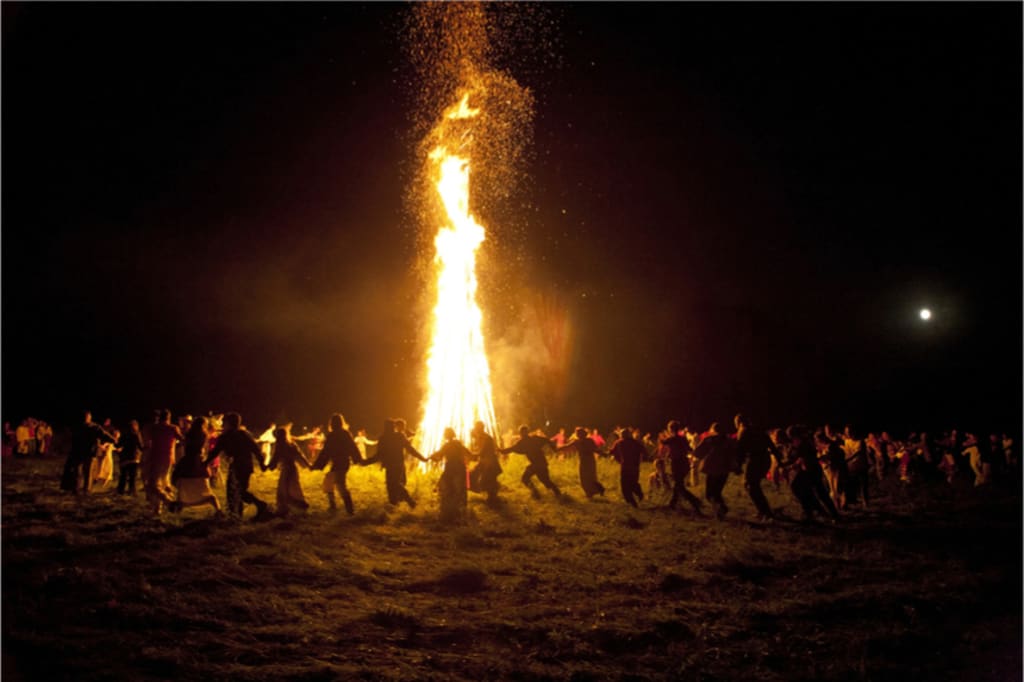
You wander into the throne room with the eyes of only the King's guards locked on the back of your head. Each man is sword-armed, ready to lay down their life. A ray of sunlight shines through the windows of the castle, casting a spotlight on the King's throne — your throne — after you’ve satisfied your arranged union and secured a Catholic alliance against Protestant England. The alliance benefits Scotland as they are in dire need of troops after the Battle of Pinkie. You do not wish to ascend the throne and be condemned to inevitable death. The crown will make you a target to new and existing adversaries. You don’t care for politics and tire of being reminded that marrying for love is a foolish notion. Despite your feelings, you have no choice in the matter. You are the last of the Vannier line and your mother, Queen Clarice de Poitiers would rather see her head on a spike than have Francis II of Valois claim his rule over France should you neglect your duties.
You hunker down at the steps below the thrones to pray for a swift and merciful end for your men before the unnecessary bloodshed commences in Scotland. How can you sacrifice innocent lives for a woman you have never met?
‘Mon fils, why must you hide from me?’ You spring to your feet as your mother enters the room.
She walks in slow and powerful strides. Her posture is straight and stiff as wood. Queen Clarice is adorned in emerald jewels which brings light to her coal-coloured eyes. Accompanying her is a young woman and an exceptionally tall one at that.
Her head is small, oval-shaped held upright by a neck with swanlike elegance, sultry hazel-brown eyes and blazing auburn hair. A woman of pale complexion has never caught your attention, and yet her angelic features exude much allure.
‘One’s bride should never have to seek the attention of their betrothed,’ Clarice continues.
‘La mariée?’ You echo.
‘C’est un honneur d’être en votre présence. Je suis Anastacia, Queen of Scots,’ the pale-skin beauty, now known as Anastacia, curtsies.
You bow, ‘It is an honour to have you in my home and if God will it, as my Queen,’ you raise her hand to your lips and kiss it.
After some conversation you follow reluctantly behind your mother and future bride. You have no business in any of the wedding preparations, but it’s your mother’s way of keeping you in her watchful eye. You suspect her dispassionate trust stems from having heard the rumours of your romantic rendezvous with the kitchen servant, Nicole in the dead of night. Though you are aware that nothing further could happen for the sake of your station as King of France and soon King Consort of Scotland, you thought of her often, more often than you should.
‘There is the matter of your wedding attire,’ Clarice says.
‘Yes?’ Anastacia replies.
‘If I am bold thus prevail you to have my advice, do not wear white. Other colours are better tolerated here.’
‘No slender consideration hath been had in choosing my attire. Certainly not its worth being more than this kingdom,’ Anastacia glances at Clarice’s white satin gown with full sleeves and a green French hood with a black veil on her head. ‘And white effectually appear best on me.’
Anastacia walks over to an arrangement of flowers on a table of the banquet hall. You slither to her side and whisper ‘I too enjoy white,’ a twitch of a smile on your lips.
The days, much to your displeasure, pass in the sands of time. The wedding ceremony commences, placing you on bended knees before the Cardinal Archbishop of Rouen at Notre Dame. It is one of the grandest spectacles and pageantry in all of France. There is great attendance from those of royal blood, cardinals, and noblemen alike all glittering in their finest. Following your nuptials is a procession leading to a grand banquet. A crowd of excited commoners surrounds you on the way there. You give no restraint to the wine as you light-heartily dance far into the night.
For a few days there was a time of peace after your wedding, one that was short-lived when Lord Darnley, one of your trusted advisors, enters the throne room.
‘Your Majesties, Protestant radicals have seized the Benedictine Monastery in Angers.’
Anastacia leans forward, ‘Why must this concern us?’
‘My Queen, they are withholding children of noblemen. Lord Renaude and Lord Savoy’s children are amongst them.’
You open your mouth to speak, but Anastacia presses for more information. Nineteen hostages have been taken and five of them are noble children.
‘They are heavily armed,’ he continues. ‘The parents have sent letters to meet with you to arrange for the safety of their children,’ he retrieves the letters from his person and presents it before you. You motion for him to come forth but, Anastacia proceeds without you.
‘The King and I shall discuss the matter and make our decision by days end.’
‘But, your Majesty, I—’
‘Will await our decision,’ Anastacia concludes.
Lord Darnley bows and exits the room. You ponder Anastacia's hesitance to rescue the children, and when you ask, her answer leaves you without words.
‘Though their parents are of Catholic faith, there is much talk in the kingdom that the children practice unholy acts against God.’
‘Their parents have heartily done us very humble service in supplying grain for most of the kingdom and should we fail —’
‘Do not speak as though I lack understanding,’ Anastacia’s tone is more authoritative than your own.
‘Je suis le Roi!’ You slam your hand on the arm of the throne, ‘and a King must be obeyed by his Queen. I’ve decided to send for General Knox —’
Anastacia’s mouth is agape, ‘But Knox is —’
‘Leading our troops in Scotland? This I am aware but General Knox is the only General trained for this mission. I will not hear another word from you on the matter.’
Anastacia stares at you through narrow eyes. There is a fiery rage in them. You feel uncomfortable, smaller, even under the intensity of her gaze. You attempt to maintain eye contact as you clear your throat and square your shoulders. She hastily stands and marches away, leaving you addled. You sigh, then slump into the chair.
You spend several nights with General Knox in the drawing-room coercing a plan of action. Your envoys have reported that the Protestants have no intention of negotiating the children’s release and have no demands of their own. You offer them gold, land, going as far as threatening to hang them as punishment, but they are already prepared to die.
‘We shall move at night’s end,’ General Knox says. ‘We suspect they have gun powder at the ready, so a distraction is necessary.’
You listen intently to Knox’s plan to distract the radicals under the pretence of attempting a final negotiation whilst you retrieve the children from the back door outside, leading to their captive place, the cellar. With the details finalised, and you taking second command, you and your men set out on the mission. The Protestant Radicals were none the wiser as you aid the guards in carrying the children one by one into the carriage at the back of the Monastery. Once you clear the cellar, you signal your archers in the trees. At your behest, arrows fire at the Protestants, as you retreat towards the castle. You’re not sure if you’ll ever forget the fear in the children’s eyes, the dirt smeared across their faces and the gun powder in their hair.
Later that night, you toss and turn from the images appearing in your mind. You envision yourself and Anastacia burning at the stake — a punishment befitting anyone caught practising witchcraft — at the hands of the noble children. You shoot upright, panting, as your body drips in a cold sweat. You survey your empty room as your heart beats at an unsteady pace. At a side glance you notice shadows dash beneath the door following the faint sounds of giggles.
You open the door just enough to poke your head out. Though the hall is empty, you follow the noise to a room at the end of the hallway. The door is ajar enough for you to see one of your guards with both hands bound to the arms of a chair and a cloth stuffed in his mouth. You observe Elizabeth, Lord Renaude’s daughter, drag the steel of his sword against the floor, the high-pitch sound unbearable as the others chant in a foreign language. She uses the blade to slit his wrist, draining his blood in a bowl held by her brother, Sebastian. Once the bowl fills, she cuts the guard’s hand clean at the wrist. You stifle a gasp and stumble backwards as thoughts race across your mind. Anastacia was right. What have you done?






Comments
There are no comments for this story
Be the first to respond and start the conversation.